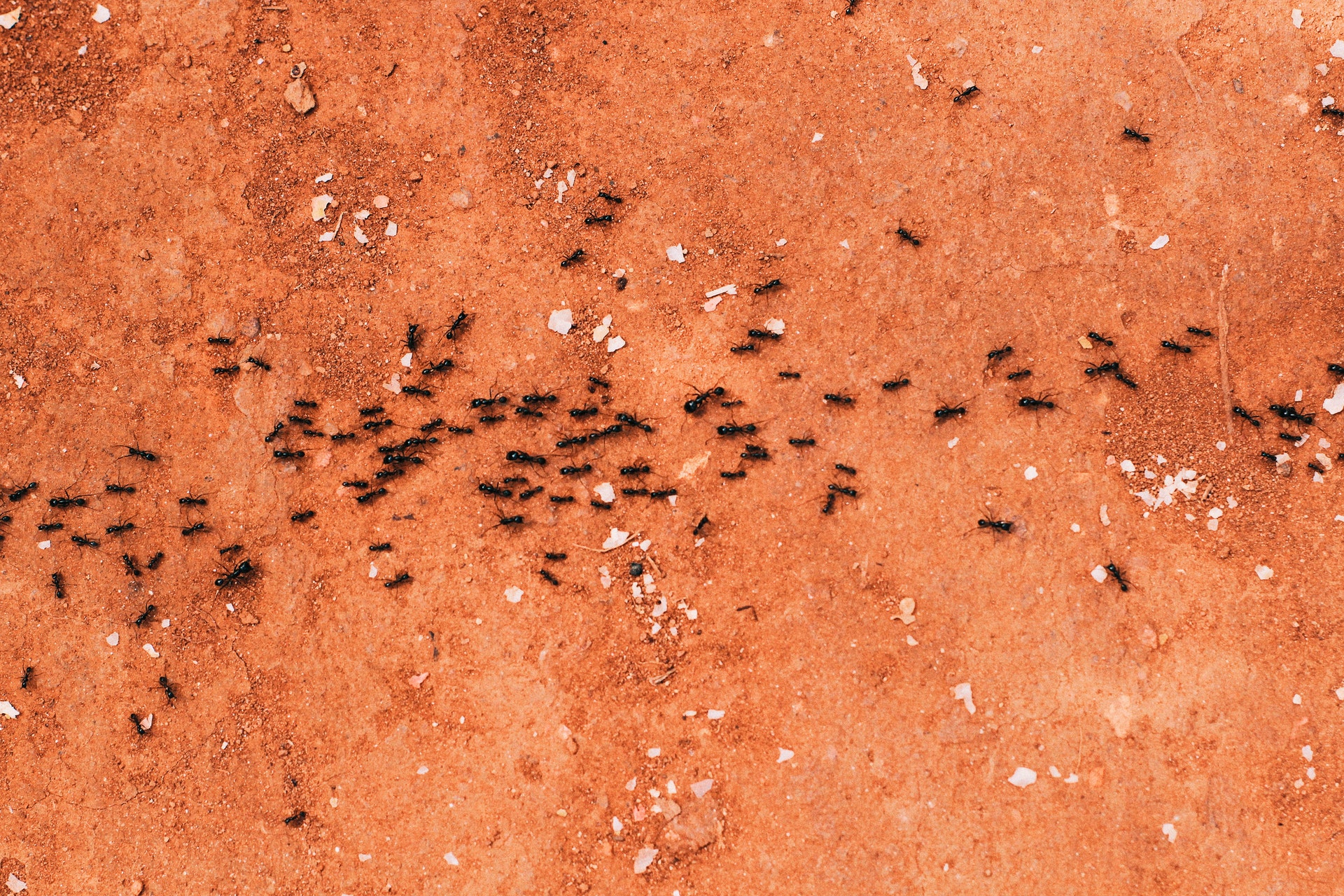
By Pam Canty, Intake and Screening Integration Coordinator at Elder Law of Michigan
Do you need some helpful household hints to ward off or proof your home against some of the most popular guests; stink bugs (brown marmorated), bed bugs, roaches, and ants? Do you just need those unwanted guests not to enter your home, or pack-up and move out as soon as possible? Even with limited income there are things you can do to manage these invaders. Hopefully, you can use some of these helpful hints along with items you may already have in your home to keep unwanted guests away.
Stink bugs (Brown Marmorated) are a pest we do not need in our homes. They enter the home during the day or are attracted to lights at night. These insects can use other methods of entering your home such as cracks, crevices, gaps and holes in foundations, window and door frames, soffits, attics, and underneath siding. The DIY Network suggests the following helpful home remedies.
- Essential oil spray can be made by mixing 10 drops of mint essential oil with 16 ounces of water for a spray to use on entryways and windows.
- Neem oil is a plant-based natural insecticide, mix 32 ounces of water and two teaspoons of neem oil to make a spray that will deter bugs.
- Garlic spray can be made by combining four teaspoons of garlic powder and two cups of water. Spray this mixture where stink bugs are likely to enter your home.
- Vacuuming them only works if your vacuum cleaner has a bag, which you must throw away immediately.
- Soapy water, when combined equal parts hot water and dish soap can be used as a spray for entry points.
- Fly traps placed at entryways can catch stink bugs as they try to enter.
- Safeguard your house against bugs by caulking any cracks or crevices.
- Dryer sheets can be rubbed on entry points to keep stink bugs out. Also, when traveling place dryer sheets inside suitcases to ward off stink bugs.
When bedbugs infest a home, they can live anywhere. MedicineNet reports bedbugs most commonly infest beds and sleeping areas but can infest other furniture, carpeting, cracks in flooring, walls, or furniture frames. Bed bugs are primarily active at night when they come out and feed on you as you sleep. Bedbug bites usually are found on exposed skin like hands, arms, and faces. Infested mattresses and box springs can be discarded or wrapped in plastic to trap the bedbugs. Washing bedding and clothes in hot water and drying with high heat can kill bedbugs and their larvae. Cleaning and vacuuming furniture and floors can also help get rid of bedbugs. Shake out suitcases after traveling. Only use an insecticide in cracks on floors or furniture in areas that do not come into contact with skin. An exterminator can help if you’re unable to rid the home of bedbugs. Sleep Advisor suggests some helpful home remedies for removing bed bugs.
- Vacuuming can remove some bedbugs and eggs. All soft furniture, sleeping areas, carpets, and floors should be vacuumed thoroughly. Any cracks in floorboards, walls, or furniture need extra attention. After vacuuming throw the vacuum bag away outside of the home.
- Steam cleaning will kill bedbugs and eggs by exposing them to temperatures above 140 degrees Fahrenheit.
- Wash all clothes and bedding. The hot water and dryer heat will kill off bedbug colonies.
- Silica gel, found in food and shoe boxes, can be ground into a powder and spread in infested areas. It is suggested not to use this around children and pets as direct exposure is harmful.
- Rubbing alcohol kills bedbugs on contact, use a spray bottle to spray infested areas.
- Scented dryer sheets can repel bed bugs temporarily, but they may find other places to hide in your home.
- Hair dryers can be a quick solution to kill bedbugs in a specific area. The heat from the hairdryer will kill any bedbugs and eggs.
- A stiff brush can be scrubbed over areas to loosen clinging bed bugs and eggs making it possible to vacuum them up.
- Double-sided tape can be placed on the floor around bedposts. Bed bugs will get stuck to the tape and not be able to reach the bed. Clothes and bedding should be kept off the floor so bedbugs can’t use them to access the bed.
- Baking soda removes moisture from bed bugs, killing them. Spread the baking soda wherever bugs are found.
Roaches are pests that can run rampant through an apartment building. It takes a village to rid your apartment of these freeloaders. However, Bustle has a few helpful hints if your apartment complex puts that responsibility on the tenant.
- Keep your apartment clean. Store food in sealed containers, wash dirty dishes, pots, etc., keep under and around your stove/refrigerator clean.
- Dust your baseboards with a food-grade Diatomaceous Earth to treat them. Dusting outlets and any cracks in the floor or ceiling with Diatomaceous Earth can control roaches by dehydrating and killing them when they walk through it.
- Make a roach trap: combine white flour, cocoa, oatmeal, boric acid, or citrus pulp, brown sugar, cornmeal, and boric acid. Place small jars or cans of these mixtures where you think roaches are entering your apartment.
- Vacuum regularly, emptying the vacuum bag or canister in an outside dumpster. Also, if you are using a bagless vacuum make sure you clean it out thoroughly.
- Cover drains (sinks, tubs, and showers) because roaches love damp or wet places.
- Seal the bottom of your door with a door seal set because roaches are known for crawling under doors.
- Catnip can repel roaches. Place small breathable bags filled with catnip into nooks and crannies.
- Osage oranges placed around the apartment can repel roaches as well.
Ants are just as annoying and unhygienic as roaches and can run rampant in your home. They carry bacteria and contaminate your food. Carpenter ants can damage home structures as well. How to Get Rid of Ants: 8 Home Remedies That Do the Trick suggests some household remedies you may already have in your home.
- Lemons and oranges deter ants. You can keep ants away by placing orange or lemon peels at entryways or adding a little lemon juice to the water when you mop your floors. Try making a paste of one cup warm water and a few orange peels and spreading this where ants enter.
- Pepper and cayenne pepper can be sprinkled or made into a water solution and sprayed at entrances to deter ants.
- Salt can be dissolved in water and sprayed as an ant deterrent, or sprinkled around the house.
- White vinegar can be mixed with equal parts of water to create an ant deterrent solution.
- Cinnamon is thought to be a natural repellent and can be sprinkled around the house.
- Peppermint has a strong smell which ants dislike. Mix 10 drops of peppermint oil with water and spray along the entrance of those little intruders.
I hope these helpful hints can help with those little unwanted guests that enter your home. You can now send them packing back outside, where they were intended to reside.
Pam Canty is an Intake and Screening Integration Coordinator at Elder Law of Michigan and has been a member of the Elder Law of Michigan team since 2005. As an Intake and Screening Coordinator, Pam helps seniors in Michigan apply for food assistance and other benefits.
